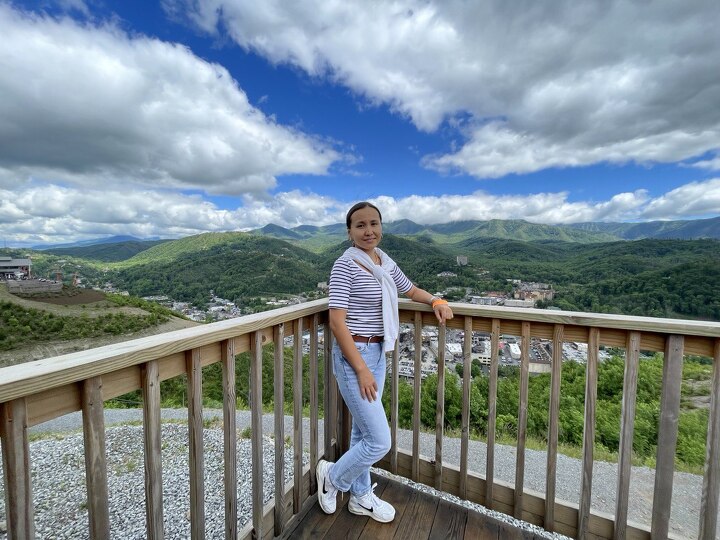
"Many people look at the United States through rose-colored glasses, thinking that this country is waiting for them with open arms, "But, actually, here, you need to work hard," says our countrywoman.
Today, the financial plans of Johnson & Johnson's branches in North America, Canada and Puerto Rico go through Dinara Murtazina, a Kazakh woman. She monitors the expenses of the global giant, the budget, surplus or deficit of finances, and helps the company to prepare financial plans
"My task is to plan the budget for each team. I need to take into account everything: salary payments, spending on utilities and services, new projects, etc," Dinara briefed us, "I calculate all this with the business partners of each team and monitor budgets throughout the year. And if I see that some team needs additional funding, I look for a reason and why they didn't take this into account when budgeting. Whether there is a risk for the company, where we can save money, where to invest. In general, I first make a budget, and then I keep track of where and how it is spent."
Now Dinara easily understands million-dollar accounts and operates with large sums, but in her youth she did not plan to work with numbers.
Dinara was born in the Semiozernoye village, Kostanay region. She studied 8 years at a local school, then her family moved to Kostanay, where she graduated. After school, Dinara dreamed about studying international relations, there was no talk about finances at all.
"In the summer, before the 11th grade, USAID recruited ten schoolchildren from Kazakhstan and Kyrgyzstan to the Issyk-Kul camp. I got there. We had to leave Almaty, where I arrived by train and stayed in a rented apartment in the KIMEP University area." "We found out that there is a canteen on the territory of the university, and went there to have a snack", Dinara shares her memories, "When I entered the campus, I discovered a new world. From that moment, I decided that I wanted to study here, although I had not even heard of this university before.
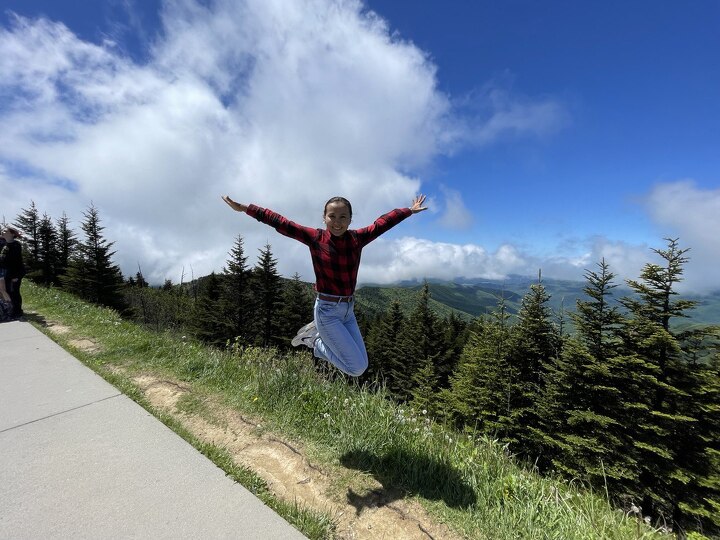
I made the choice, and only needed to win the grant." Dinara is from an ordinary family - her mother worked in a bank, and her father was a retired military man. The family could not afford the expensive university tuition. Therefore, in the last year of school Dinara diligently prepared for exams, studied with tutors. "And as a result, I got the grant. That is just not for the major I dreamed of.
I always wanted to study international relations, but then I decided to study business administration, since it had a higher threshold score. In case of a shortage of students in this faculty, I would have enough points to enroll in international relations with a grant. I got a fairly good score, which was enough to enroll in finance and accounting. But I did not change it to international relations, because I "suddenly" started to like this field," laughs Dinara.
The world of finance fascinated Dinara so much that after graduating from university, she decided to try her hand at the Almaty branch of the EY, one of the Big Four companies. First, she got an internship, and six months later, Dinara was officially hired as an auditor. In this position, she monitored the expenses of companies, prepared financial reports and checked the accuracy of the numbers. At the same time, she was preparing to enter the University of Bristol in the UK. Eventually she got there under the Bolashak program.
After receiving a master's degree in finance and investment, Dinara returned to Almaty and with new knowledge got a job in the evaluation department at another Big Four company, KPMG.
"We evaluated the subsidiaries of the Samruk-Kazyna Fund. I participated in several audits of power plants, some KTZ divisions and other state-owned and private companies that needed an assessment for the bank or for sale," explains Dinara Murtazina.
While working at KPMG, Dinara and her husband decided to try their luck and participate in the annual Green Card Lottery by the US government, not really believing in success. They pulled out a lucky ticket, and in December 2018, the family moved to Florida.
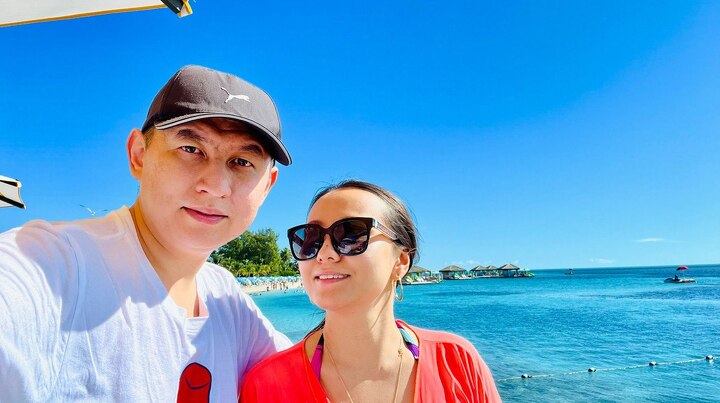
Two months after the move, the couple had a daughter, and Dinara went on maternity leave. A year later, at the height of the pandemic, she decided to go to work again, not hoping to find something worthwhile after maternity leave. However, after four months of searching, she found a job as an analyst in a private medical company.
-"This company had several clinics in Florida and Michigan. I managed their budget, conducted financial analyses," she recalls, "But after working there for about a year, I realized that I was bored. All the processes have already been set up, and I was rather tired of doing the same thing. Besides, after many years in the corporate environment of EY and KPMG, I lacked the corporate spirit and action."
The lack of prospects also disappointed, so without thinking twice, Dinara sent out a resume to large companies and found the desired position in Johnson & Johnson Corporation.
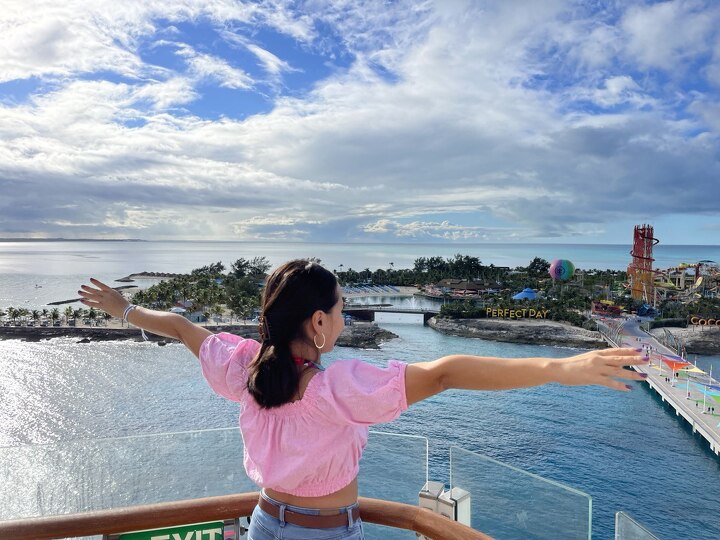
According to her, the experience of working in the Big Four companies and the availability of international certificates helped to pass several difficult stages of the interview.
"The Big Four are international companies, so the work principles and standards there are very similar. In addition, back in Kazakhstan, I received the ACCA certificate (Association of Chartered Certified Accountants - F) - one of the most internationally respected. I also have a CFA certificate, which is an internationally recognized document that allows financial professionals to work in the investment market. I also had a UK master's degree. All this helped me get a job here. And, of course, you need to prepare well for the interview," explains Dinara.
Despite quite a few credentials, difficulties have not spared our heroine.
"At first I struggled. I had to get used to people, terminology, some abbreviations and corporate culture. Initially, I was very sorry that I left my calm, measured work for a job where I was on my own. The new job has a frenzied rhythm, they constantly demand something from you, you need to submit reports, constantly analyze something, and hold meetings. But now I feel quite comfortable," says Dinara.
We also talked with Dinara about life in the States. She has been living in America for almost four years, but still cannot get used to some of the peculiarities of this country.
"We, Kazakhs, are used to the fact that some rules can be circumvented, you can meet someone halfway or offer flexibility. Somewhere it's good, somewhere it's bad. Here, everyone always follows protocol, strict rules. There is no way to bypass the system. You need to do everything within the instructions. Sometimes it's stressful, but you understand that this is the way it should be. Because if everyone wants to bypass the system, it will cause chaos, and then a civilized society is out of question," she told us about American principles.
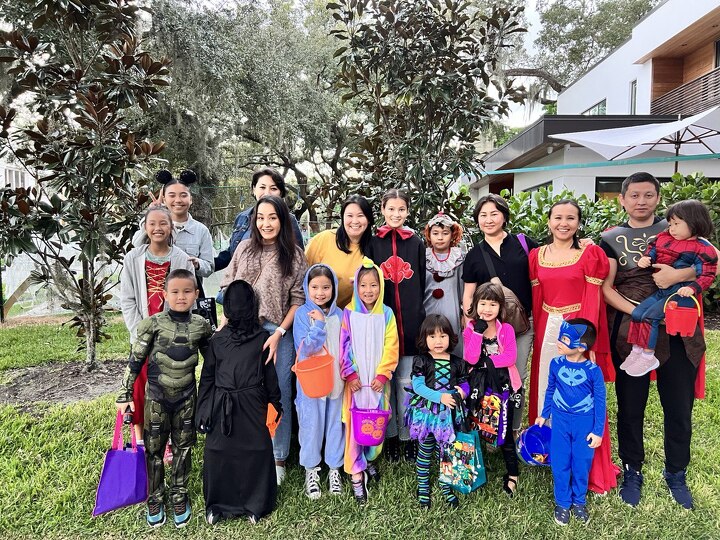
Dinara believes that many who come to the United States from other countries "look at the States through rose-colored glasses," thinking that the country is waiting for them with open arms. However, this is far from the case.
"For those who are planning to move to the US, I would advise, first of all, to set a goal – why are you going to the States", says Dinara, "the States accept only the goal-oriented. Here you need to work hard, no connections will help you, the competition is very high. You have to be a professional to be noticed
Dinara has no plans to leave the company she now loves, but is considering the possibility of slightly changing her field.
"Here you can endlessly grow and develop, change the department, study new areas." Therefore, in the next year or two I plan to move to the position of manager of the financial analytics department or executive, which is higher than my current position. I feel that I am ready for this," Dinara shared her plans.
Dinara's family has not discussed their return to the homeland yet. However, as she says, they can return to Kazakhstan at any time, and she "is happy with this option."
"If we couldn't leave for some reason, it would bother me. But we are here legally, we earn legally, we can visit relatives at any time, they can visit us, so everything is quite relaxed. Will we return to Kazakhstan? Who knows, we'll see. But in any case, I really miss my country and my family," Dinara summed up.
Forbes.kz